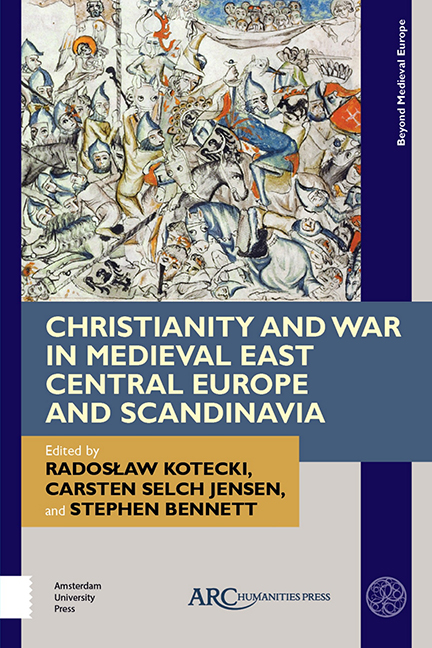Chapter 10 - Rhetoric of War: The Imagination of War in Medieval Written Sources (Central and Eastern Europe in the High Middle Ages)
Published online by Cambridge University Press: 27 May 2021
Summary
O the wretched gods of fearful men! They have occupied the hill in vain, they who lack strength and military skill. Nor will the hill help them if their courage is weak. Notice that they do not dare to meet you on a level field. Indeed, if I am not mistaken, they are now ready to flee. But before they flee, rush over them in a sudden attack, and do it in the usual way so that you trample them under your feet like paltry blades of grass. Take care lest you pollute brave spears with the blood of the cowardly. Instead send up the birds you carry in order to terrify the army like doves trembling before falcons.
THESE WERE WORDS the mythical Vlastislav, duke of Luczane-gens, directed to his men before the battle with the Bohemi. His speech was, of course, never spoken. It was invented by Cosmas (ca. 1055– 1125), who wrote his chronicle on the Bohemians in Prague, the capital of the Přemyslid principality, as a dean of episcopal St. Vitus chapter, in the first quarter of the twelfth century. These words should be contrasted with the first speech of Tyro, leader of the Bohemians, who led his people to victory. Together, they offer an insight into the chronicler’s attitude towards military conflicts. Traditionally, studies on attitudes towards war in the Middle Ages have generally drawn from contemporary theological treatises, or legal texts. In comparison, narrative sources have mostly been used to illustrate the course of armed conflicts, military tactics, and strategy. Yet, medieval chroniclers did not focus so much on data collection (even though they sought accuracy) as on offering an insight into their imaginations. As chroniclers were almost exclusively recruited from the clergy (and represented different ecclesiastical institutions), they also provided their readers with neat correlations to canon law. Notably, canon law defined the relationship between the Church, its clergy, and war. In this chapter, we scrutinize the imagination of war through selected medieval chronicles and histories written between 950 and 1120 in East Central and Eastern Europe.
- Type
- Chapter
- Information
- Publisher: Amsterdam University PressPrint publication year: 2021
- 1
- Cited by



